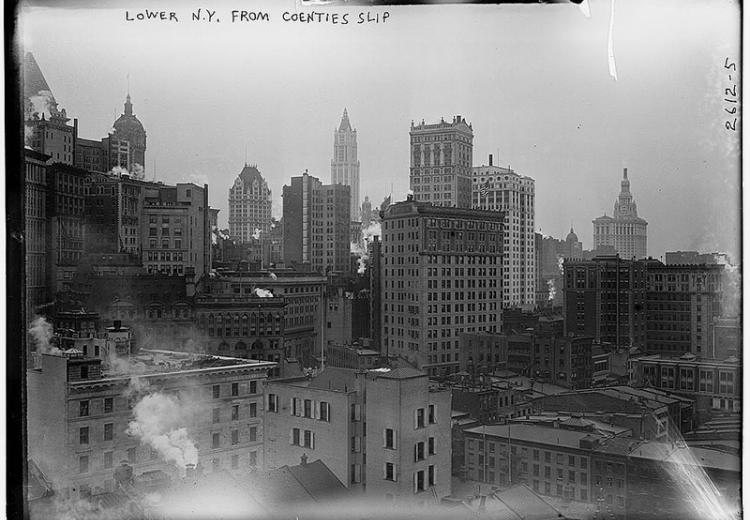The Industrial Age in America: Robber Barons and Captains of Industry

Lower New York City, early 1900s.
"This, then, is held to be the duty of the man of wealth: First, to set an example of modest, unostentatious living, shunning display or extravagance; … and, after doing so, to consider all surplus revenues which come to him simply as trust funds, which he is called upon to administer… to produce the most beneficial results for the community—the man of wealth thus becoming the mere trustee and agent for his poorer brethren, bringing to their service his superior wisdom, experience and ability to administer, doing for them better than they would or could do for themselves."
—Andrew Carnegie, North American Review (1889)
Though a century has passed since the heyday of the great industrialists and financiers, debate continues: were these men captains of industry, without whom this country could not have taken its place as a great industrial power, or were they robber barons, limiting healthy competition and robbing from the poor to benefit the rich? Where do we draw the line between unfair business practices and competition that leads to innovation, investment, and improvement in the standard of living for everyone? Would the industrial economy have succeeded without entrepreneurs willing to take competition to its extremes?
This lesson may be taught either as a stand-alone lesson or as a complement to another EDSITEment lesson The Industrial Age in America: Sweatshops, Steel Mills, and Factories.
Guiding Questions
What various practices of industrialists/financiers led to their being labeled "robber barons" and "Captains of industry"?
How shall we judge the contributions to American society of the great financiers and industrialists at the end of the nineteenth and beginning of the twentieth centuries?
Does the industrialization of America at the end of the nineteenth and beginning of the twentieth century hold any lessons for us today?
Learning Objectives
Explain the terms "robber baron" and "captain of industry" within the context of the time.
Evaluate the actions taken by various captains of industry and robber barons of the time.
Synthesize information from primary and secondary sources to create a position on the compelling questions.
